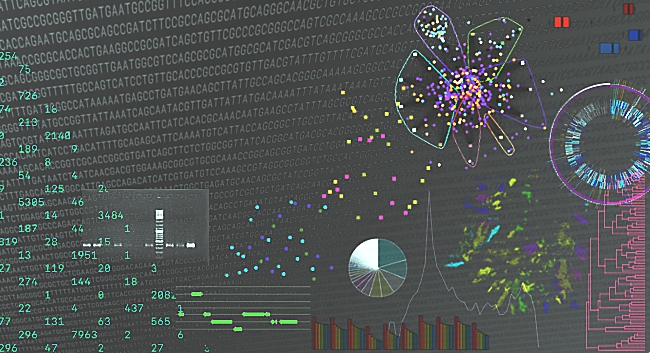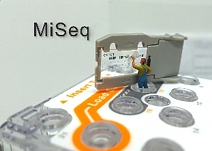
Omics and Bioinformatics
When today’s ecologists want to study microbial diversity, they use high-throughput molecular analytics which aim to measure entire genomes, or all transcripts or proteins in a sample. These analytical techniques are collectively named "Omics", or "Meta-omics" when applied to whole microbial communities. Because omics datasets are large, they can only be processed and integrated using computational methods and Bioinformatics.
We provide both wet-lab as well as computational service and support, and develop new workflows to enable researchers to better understand microbial communities of the soil.
Research focus
Sequencing lab
- The sequencing lab at the department is equipped to perform sample processing, nucleic acid extraction, quality control, library preparation and sequencing.
- The majority of our projects make use of amplicon sequencing technology and the Illumina MiSeq.
- We are also establishing the Oxford Nanopore technology to profit from long sequencing reads of the Minion sequencer.


Bioinformatics
- Maintenance and updating of user-friendly pipelines for processing amplicon sequencing data on UFZ’s high-performance computing cluster, e.g. dadasnake or DeltaMP.
- Establishment of integrated multi-omics pipelines for whole metagenome and metatranscriptome shotgun sequencing data, e.g. based on IMP.
- Numerical ecology, network and statistical analysis of microbial census and ecosystem function, environmental, and spatial data.
- Training and support for doctoral students and postdocs is offered.
Platform data
- Location: UFZ Halle
- Platform type: Sequencing lab and computational support
- Research groups involved: Scientists from the Helmholtz Centre for Environmental Research - UFZ, German Centre for Integrative Biodiversity Research (iDiv) Halle-Jena-Leipzig
- Contact (sequencing): Beatrix Schnabel
- Contact (scientific): Dr. Luis Daniel Prada Salcedo
- Web:
